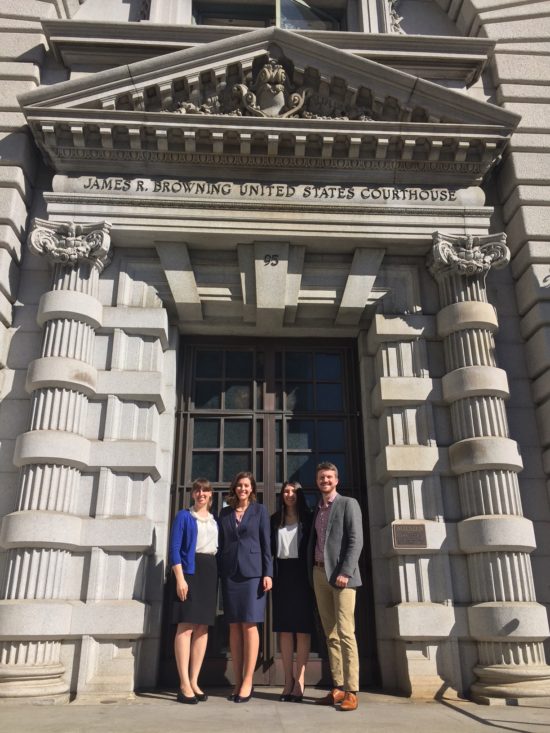Religious Liberty Clinic Secures Major Victory at Ninth Circuit
Last Friday, students from the Stanford Law School Religious Liberty Clinic won a landmark appeal at the U.S. Court of Appeals for the Ninth Circuit. The case involves the ability of inmates to pursue religious-liberty claims in court, including the scope of administrative-exhaustion requirements under the Prison Litigation Reform Act (PLRA) that inmates must meet before they can sue. In a 25-page published opinion, the Court unanimously ruled in favor of the Clinic’s client and in support of its position in briefing and at oral argument that context matters when assessing whether inmates have in fact met the PLRA’s requirement of exhausting prison-level remedies before going to court.

The case arose from an Arizona prison’s refusal to recognize an inmate’s need to abstain from work at his prison job on a religious holiday. Rather than accommodating the inmate, the prison disciplined him for refusing to work. The inmate appealed his discipline, relying on his right to accommodation as a matter of religious liberty. In reversing the district court, the Ninth Circuit held that the inmate’s efforts to raise his concerns in the disciplinary appeal exhausted his administrative remedies and no further grievance over his denial of accommodation was required under the PLRA. The Court’s ruling is significant because it is the Ninth Circuit’s first detailed examination in a published opinion of the parameters of PLRA exhaustion in light of the Supreme Court’s decision in Ross v. Blake, 136 S. Ct. 1850 (2016), and also because it discourages using the PLRA to thwart rather than facilitate inmate claims.
The Religious Liberty Clinic took on the case at the Ninth Circuit’s request in late 2017 based on its growing reputation in the field and the novel questions raised in the appeal. Former clinic students Elizabeth Callahan, Kevin Eaton, Caleb Griscom, Chuck Roberts, and Gil Walton wrote the opening and reply briefs last spring, while Jane Kessner and Kelsey Woodford presented oral argument this past February. Each successive student team was likewise supported in editing and mooting by their fellow classmates and one another. The student briefs are available here and here; video of the oral argument can be found here.
